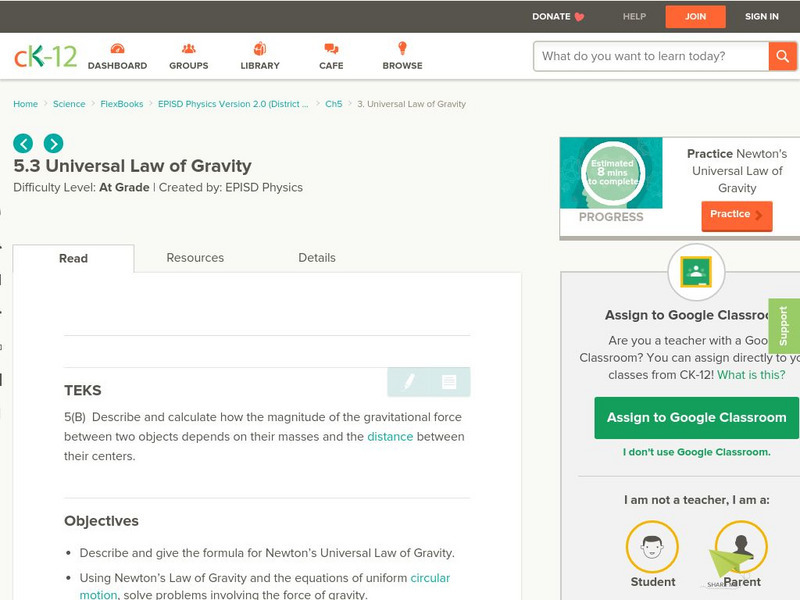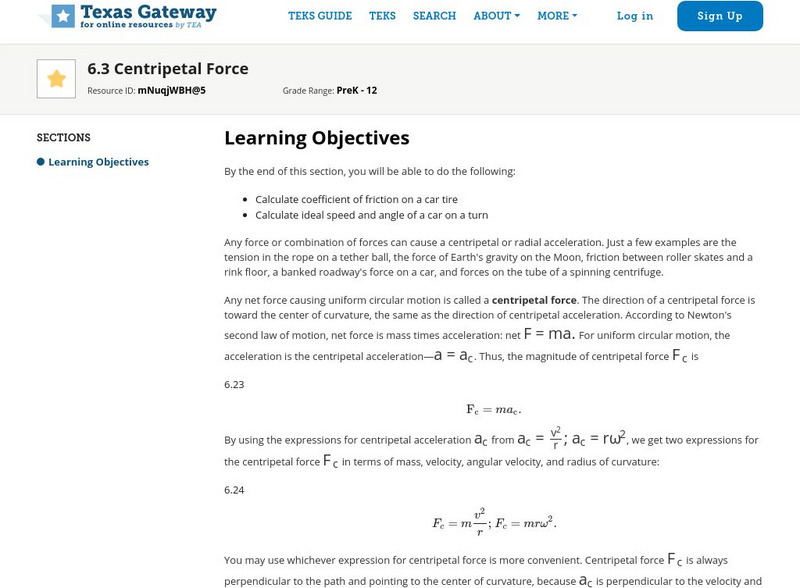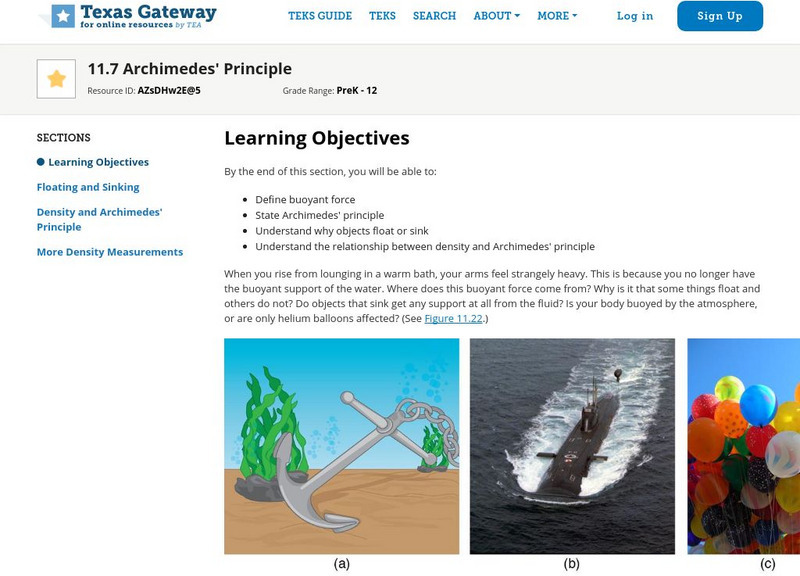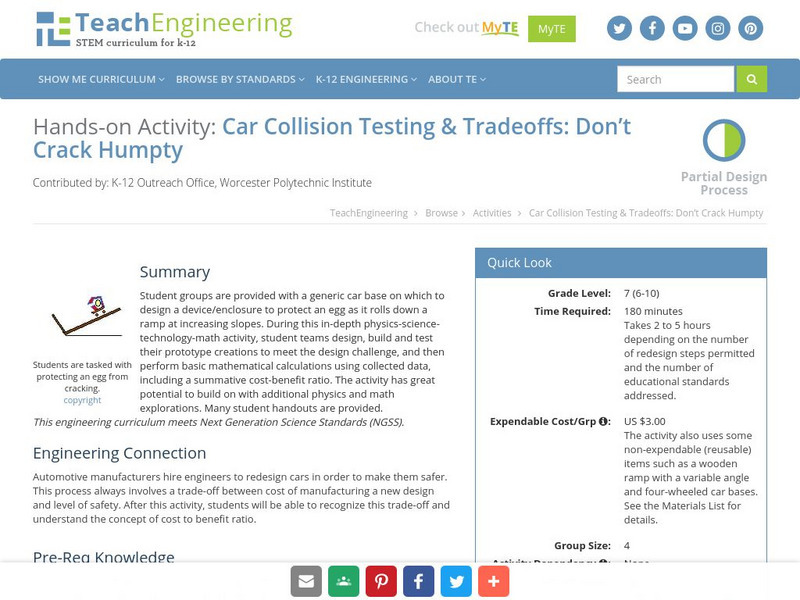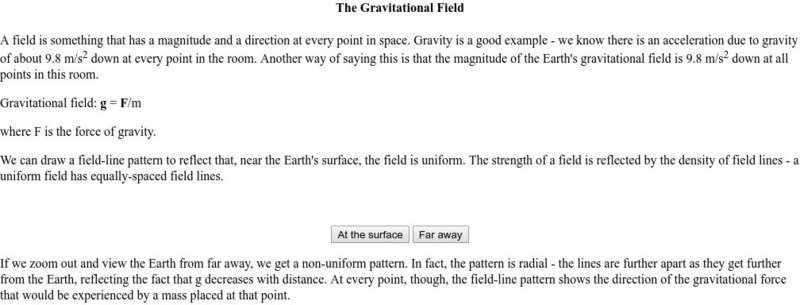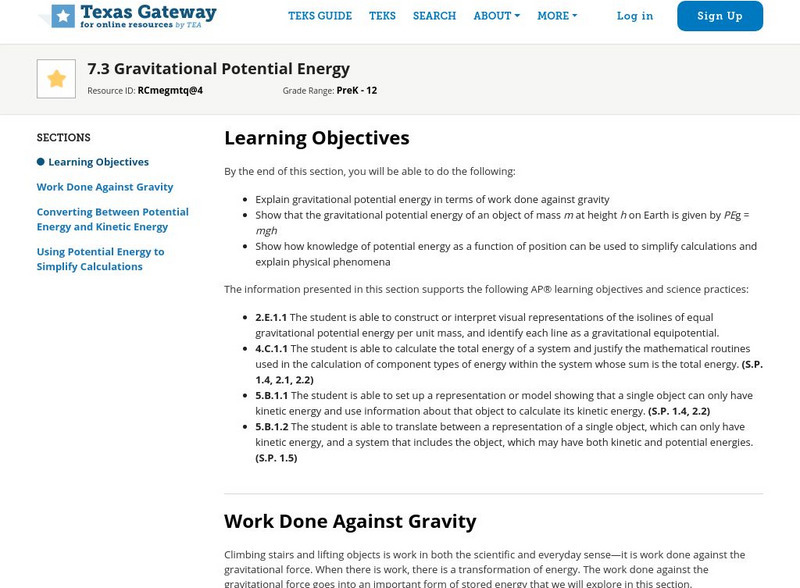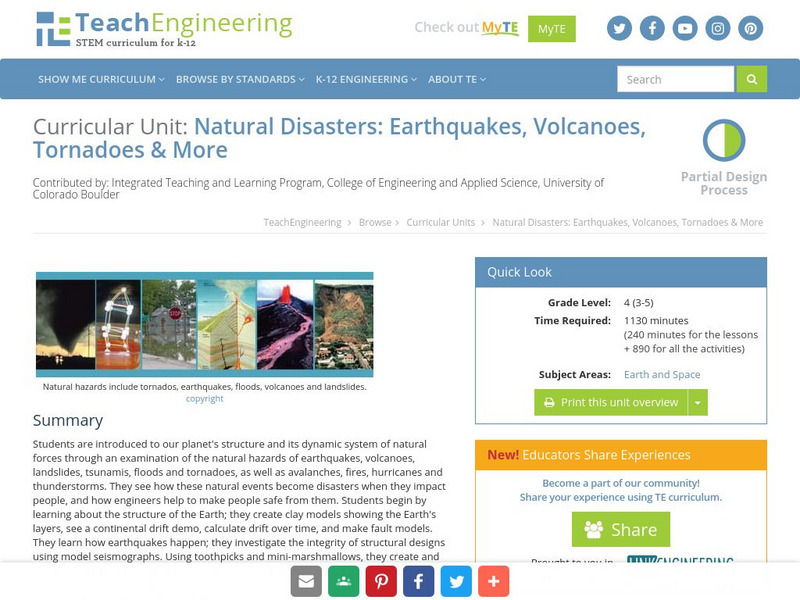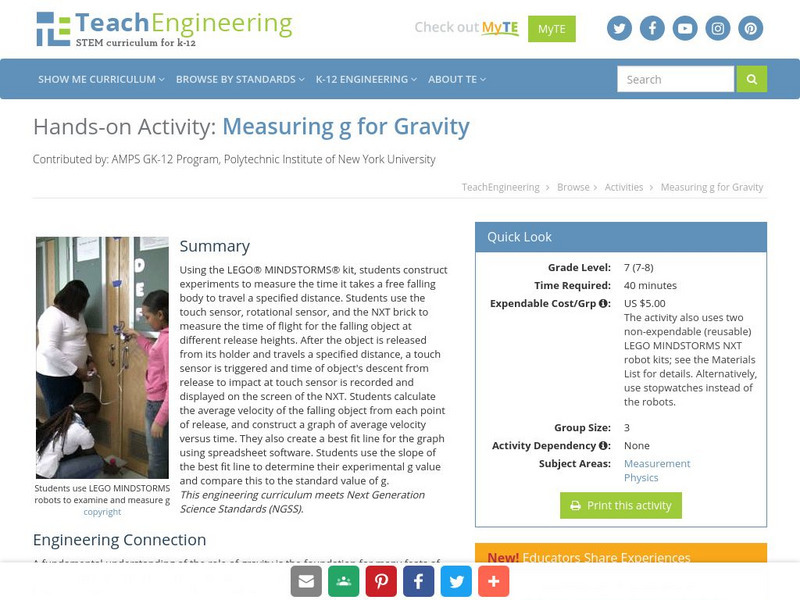CK-12 Foundation
Ck 12: Universal Law of Gravity
[Free Registration/Login may be required to access all resource tools.] In this online tutorial students will learn to describe and calculate how the magnitude of the gravitational force between two objects depends on their masses and...
Texas Education Agency
Texas Gateway: Uniform Circular Motion and Gravitation: Centripetal Forces
By the end of this section, you will be able to calculate coefficient of friction on a car tire and to calculate ideal speed and angle of a car on a turn.
Georgia Department of Education
Ga Virtual Learning: Physical Science: Force and Motion
In this student-paced module, students apply Newton's Laws of Motion to everyday life, calculate mathematical relationships involving force and motion using algebraic formulas, and understand the difference between mass and weight.
Texas Education Agency
Texas Gateway: Ap Physics: Fluid Statics: Archimedes' Principle
By the end of this section, you will be able to define buoyant force, state Archimedes' principle, understand why objects float or sink, and understand the relationship between density and Archimedes' principle.
TeachEngineering
Teach Engineering: Car Collision Testing & Tradeoffs: Don't Crack Humpty
Student groups are provided with a generic car base on which to design a device/enclosure to protect an egg as it rolls down a ramp at increasing slopes. During this activity, student teams design, build and test their prototype...
Boston University
Boston University: The Gravitational Field
Defines what a gravitational field is, its value, and how to calculate it. Field-line patterns are also drawn and explained.
BBC
Bbc: Gcse Bitesize: Mass, Weight and Gravitational Field Strength
This lesson focuses on gravitational fields and includes what one is, the formula for gravity force, defining weight, formula for mass, an example of how to calculate gravity force, a practice question, and a link to a test.
Science Education Resource Center at Carleton College
Serc: Egg Drop
In this physics lab, students build a container to safely deliver two eggs from the top of the school. Students calculate average velocity, acceleration, momentum, and the amount of force as it hits the ground. If their egg breaks, they...
TeachEngineering
Teach Engineering: The Claw
Students learn about gear ratios and power by operating toy mechanical cranes of differing gear ratios. They attempt to pick up objects with various masses to witness how much power must be applied to the system to oppose the force of...
Texas Education Agency
Texas Gateway: Ap Physics: Gravitational Potential Energy
By the end of this section, you will be able to explain gravitational potential energy in terms of work done against gravity, show that the gravitational potential energy of an object of mass m at height h on Earth is given by PEg = mgh,...
TeachEngineering
Teach Engineering: Natural Disasters
Students are introduced to our planet's structure and its dynamic system of natural forces through an examination of the natural hazards of earthquakes, volcanoes, landslides, tsunamis, floods and tornados, as well as avalanches, fires,...
TeachEngineering
Teach Engineering: Measuring G
Using the LEGO MINDSTORMS NXT kit, students construct experiments to measure the time it takes a free falling body to travel a specified distance. Students use the touch sensor, rotational sensor, and the NXT brick to measure the time of...
Khan Academy
Khan Academy: Start: How Do Computers Simulate the Motion of Virtual Particles?
In this lesson we'll explore how we use fairly simple physics to draw particles which move according to the forces we feel in the real world (such as wind & gravity).
Science and Mathematics Initiative for Learning Enhancement (SMILE)
Smile: The Center of Mass
This site from the Illinois Institute of Technology provides a lab activity in which students determine the location of the center of mass of an irregularly shaped object. Observations are related to the balancing point of the object....
NASA
Nasa Star Child: Planet Hop
Figure out your age and your weight on all the planets in the solar system using the formulas given here. Then type them into the correct place, and let the computer check to see if you are correct.
